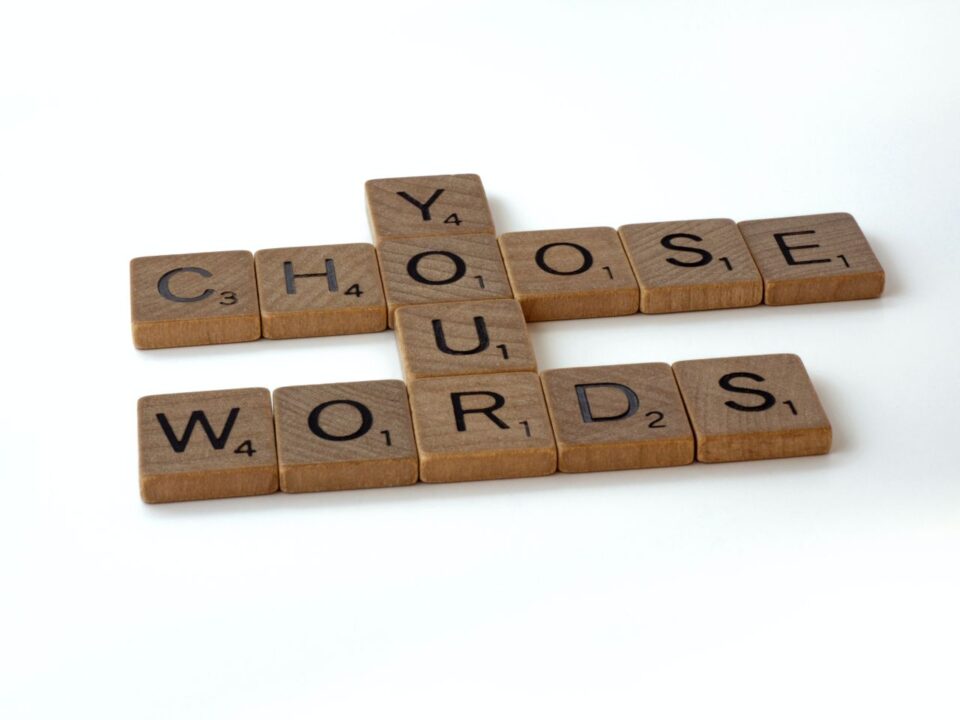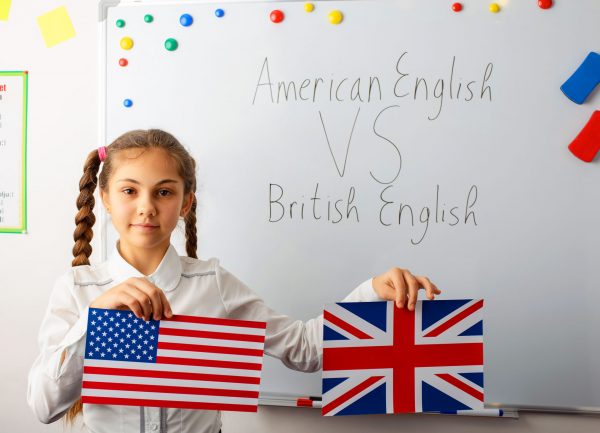Elevate Your Flirting Game: The Best Pick-Up Lines in English
The best pick up lines are those you can use in real life without cringing. 😄
“Misspelled” is one of them and people often misspell it. 🤯

If you ever had the feeling a word doesn’t look right after you typed it, you are not alone. The words from our list of 100 most misspelled words in English pose challenges for more people than you think. No matter if you’re an English native speaker or not, hard-to-spell words are determined to give you a headache. And if bad spelling does happen, it’s usually in very important contexts like your application letter or during a conversation with your crush – can’t decide which one is more heartbreaking. 💔 So, you can probably agree that correct spelling in written communication is crucial regardless of the context.
Whether we’re talking about fancy words or downright common ones like “license” (not “lisence”), misspellings are like Thanos: inevitable. But even Thanos was finally defeated, so you, too, can vanquish misspelled words. The first step is to acknowledge them, so let’s do it. We’ll begin with a small but condensed list of the most misspelled words ever and continue with a complete list of the top 100 commonly misspelled words in English. Ready, steady, go!
This one will haunt some of us for the rest of our days because it also describes how we feel when we realize we’ve just misspelled a word.
There’s a famous rhyme in English that says I before E, except after C. The exact same rule applies to “believe”, so it’s advisable to use this mnemonic when in doubt.
Careful, though – there are some exceptions to it.
Also commonly misspelled as: embarrased
This is another classic case of two sets of double letters. You’ll reduce the chances of finding yourself in an embarrassing bad spelling situation if you remember this one.
Also commonly misspelled as: entrepeneur , entreprenur , entreperneur
We honestly can’t blame whoever misspells this one. It’s not only hard to spell but also hard to pronounce. The reason? It’s a French word coming from the root entreprendre (‘undertake’).
There’s a reason why you’re never sure how to spell “liaison”, “bureaucracy”, “manoeuvre”, “questionnaire”, and “connoisseur”. They do not follow the same patterns because they are all French words.
Your best bet is to just remember the correct spelling.
This is a special situation. In American English, it’s always spelled “license” – no matter what. On the other hand, in British English, it’s spelled “license” when it’s a verb and “licence” when it’s a noun.
Basically, the only wrong spelling is “lisense”. However, once you decide which spelling you’re going to use – American or British – it’s best to go forward with that one don’t combine both.
Remember the “I before E, except after C” rule? This is the kind of word where the rule applies. It also applies to “niece” and “siege”, but it doesn’t apply to “weird” or “seize”. So trust the rule, but keep in mind it has some exceptions.
Also commonly misspelled as: succesful, sucessful
There are so many double consonants in English that it becomes tempting to double them all sometimes. But for the love of English, don’t do that to “successful”.
You probably heard this tongue twister before: “English can be understood through tough thorough thought, though.” It’s hard not to get confused with so many similar-looking words. You add an O to “through” and its pronunciation changes completely.
This one is somehow similar to the “successful” situation, but not entirely. As a matter of fact, “until” was spelled with two Ls in the Middle Ages. If it helps you remember, you can think it just lost some weight but getting rid of the last L (unlike “still”).

English has drawn inspiration from many different languages, so it’s perfectly normal to get confused because of its double consonants and silent letters. We all know that moment when you stare at a word for ages and still can’t believe it has two sets of double letters. But it’s true. There are many such examples. In fact, “misspelled” is one of them and people often misspell it.
Anyway, it’s easy to make excuses! We’ve all been there. But the truth is that spelling matters. Not only in professional settings but everywhere in life. Sometimes, your spelling is the first impression someone gets of you. What would your future employer think if you wrote “aquire” instead of “acquire” or “bizzare” instead of “bizarre” (easy with the Zs, Buzz)? Good spelling can be the difference between losing or getting that dream job.
But why is that? Why do people place such a high importance on spelling? Well, good spelling can tell a couple of things about you:
| Correct Spelling | Common Misspelling |
|---|---|
| Accommodate | Accomodate |
| Acquire | Aquire |
| Aficionado | Aficianado |
| Aisle | Isle |
| Amateur | Amatuer |
| Apparent | Apparant |
| Arctic | Artic |
| Argument | Arguement |
| Atheist | Athiest |
| Believe | Belive |
| Bizarre | Bizzare |
| Calendar | Calender |
| Caribbean | Carribean |
| Cemetery | Cemetary |
| Chief | Cheif |
| Colleague | Collegue |
| Collectible | Collectable |
| Columnist | Columist |
| Committee | Commitee |
| Committed | Comitted |
| Consensus | Concensus |
| Definitely | Definately |
| Dilemma | Dilemna |
| Disappoint | Dissapoint |
| Embarrass | Embarras |
| Embarrassed | Embarassed |
| Environment | Enviroment |
| Exhilarate | Exilerate |
| Fascinate | Facinate |
| Fluorescent | Florescent |
| Foreign | Foriegn |
| Forty | Fourty |
| Friend | Freind |
| Gauge | Gage |
| Government | Goverment |
| Grateful | Greatful |
| Happened | Happend |
| Harass | Harras |
| Hors d'oeuvre | Horderves |
| Humorous | Humourous |
| Immediately | Immediatly |
| Independent | Independant |
| Jewellery | Jewelry |
| Judgment | Judgement |
| Knowledge | Knowlege |
| Leisure | Liesure |
| Liaison | Liason |
| Lightning | Lightening |
| Lose | Loose |
| Maintenance | Maintanance |
| Manoeuvre | Manuever |
| Medieval | Medival |
| Memento | Momento |
| Millennium | Millenium |
| Miniature | Minature |
| Mischievous | Mischevious |
| Misspell | Mispell |
| Nauseous | Nausious |
| Necessary | Neccessary |
| Occasion | Ocassion |
| Occurred | Occured |
| Parallel | Parralel |
| Pavilion | Pavillion |
| Perseverance | Perseverence |
| Philippines | Phillipines |
| Playwright | Playwrite |
| Privilege | Privelege |
| Publicly | Publically |
| Questionnaire | Questionaire |
| Receive | Recieve |
| Recommend | Recomend |
| Resistance | Resistence |
| Responsibility | Responsability |
| Rhythm | Rythm |
| Sacrilegious | Sacreligious |
| Schedule | Shedule |
| Sense | Sence |
| Separate | Seperate |
| Siege | Seige |
| Strength | Strenght |
| Succinct | Succint |
| Supersede | Supercede |
| Tattoo | Tatoo |
| Tendency | Tendancy |
| Threshold | Threshhold |
| Tolerance | Tollerance |
| Truly | Truely |
| Unforeseen | Unforseen |
| Unnecessary | Unecessary |
| Until | Untill |
| Vacuum | Vacum |
| Vicious | Viscious |
| Weather | Whether |
| Whether | Wether |
| Which | Wich |
| Weird | Wierd |
| Wherever | Whereever |
| Writing | Writting |
| Yacht | Yatch |
| Zealous | Zealos |
How do you avoid misspellings? One obvious answer would be spell-checkers. Alas, spell-checkers won’t actually help you to improve your spelling. You will continue to misspell words and they’ll continue to correct them like the good friends they are. This process won’t stimulate you to learn the correct spelling because somebody else already does the job for you. However, if you do want a very good spell-checker to keep you in check, we recommend Grammarly.
Supposing you really want to improve your English spelling, you’ll just have to practice. Go through this list, then add your own commonly misspelled words and practice writing them a few times. You’ll get the hang of it with just a few attempts.
If you’re only starting to learn English (or any other language), put your best foot forward with a language learning app such as Mondly. Not only does the app include spelling exercises, but it also gives you access to quick lesson reviews with all the words you’ve learned. The best way to avoid bad spelling is to convince your brain to remember the correct spelling from day one!
Let’s recap. To improve your spelling, you can:
When it comes to spelling, the English language is a real maverick. No wonder there are spelling bee competitions organized for young English-speaking students.
English words can be tricky to spell for several reasons:
Still, no matter how tricky, we love the English language because it brings everyone together. At this point in time, it wouldn’t be wrong to call it the lingua franca of the world. A lingua franca is a language used for communication between people who do not share a native language. Do you agree with us? Tell us in the comments below.
Before you leave, make sure to bookmark this article for future reference and check out these FAQs.👇
The most commonly misspelled words are “receive”, “accommodate”, “separate”, and “definitely”. These are often cited as commonly misspelled due to reasons like silent letters, double letters, and common phonetic errors.
Lists of commonly misspelled words in America often include words like “necessary”, “embarrassment”, “maintenance”, “occurrence” and “rhythm”. However, these can differ based on regional dialects, local vernacular, and other influences.
The word “misspelled” is often misspelt as “misspelt” because of the confusion over the correct past tense form of the verb “to spell”. In American English, “misspelled” is the standard past tense and past participle form. However, “misspelt” is commonly used in British English, although “misspelled” is also acceptable.
Do you want to get better at speaking and writing English fast? Try Mondly, the award-winning language app that is serious about making learning English fun.
Instead of tiring yourself for hours with inch-thick textbooks, slip a 10-minute Mondly lesson into your routine and make learning a breeze. You will learn English naturally using:
Start using Mondly for free on your computer or download the app and learn English anytime, anywhere.

The best pick up lines are those you can use in real life without cringing. 😄

Want to earn more money? Improve your English. 🇬🇧🇺🇸🇦🇺

The accent plays a huge part in making British English and American English different, but what else is there? Let’s see.
lt is usefull
thank you very much for this refresher!
Hi, Diane! I am here to solve the mystery of the ‘c’ in acquire! If a person knows their prefixes, it makes sense. The word is built like this: ac + quire. It is the same ‘quire’ building block we see in re + quire–>require and in + quire–>inquire. The ‘ac-‘ prefix is a form of the ‘ad-‘ prefix. In some prefix families, the final letter changes to match the sound or letter of (or becomes similar to) the first letter it is being joined with. Since the ‘q’ sounds like /k/, the ad- prefix changes to ‘ac-‘. There is no ‘ak-‘ or ‘aq-‘ suffixes. We see the same suffix in acquit, acquaint, acknowledge, account, and accost.
The same thing is happening in ‘success.’ In this case the ‘sub-‘ changes to match the first letter of the base ‘cess’, so we get suc + cess–>success. This is the same ‘cess’ base we see in recess and necessity. These are not “double letters,” but letters that happen to be next to each other when we put prefixes and base words together. This prefix assimilation explains the similar letters in these words from your list:
ac + com + mode/ + ate–>accommodate
ac + quire–> acquire
col + league–>colleague
suc + cess–>success
suc + cinct–> succinct
If we arm ourselves with knowledge, we don’t have to use mnemonic devices. Spelling is a cognitive activity.
Thanks for reading if you made it this far!
Thank you for the explanation, Dulcie! 😊
Thanks for the help
This is so helpful and well explained.
It was sooooo useful
Thank you for your article, Diana! Some other ideas I have to include:
1. A word I see misspelled once per day, on average: “it’s” referring to the possessive pronoun. Unless your sentence means “it is” or “it has,” NEVER use an apostrophe.
2. Plural nouns, including proper ones such as last names or days of the week, and acronymns for nouns such as DVDs, NEVER have an apostrophe. 100% never. Easy!
3. “Etc.” is a common abbreviation for the Latin “et cetera” meaning “and so forth.” This is not only commonly misspelled as “ect.,” but also commonly mispronounced verbally as “ek setera.”
I blame spell correct and whoever programmed the Microsoft software, which is never updated. I turn off autocorrect on EVERY electronic device I use.
Pavillion is wrong! pavilion is correct 🤠
The word lose and loose …..I often see them used incorrectly